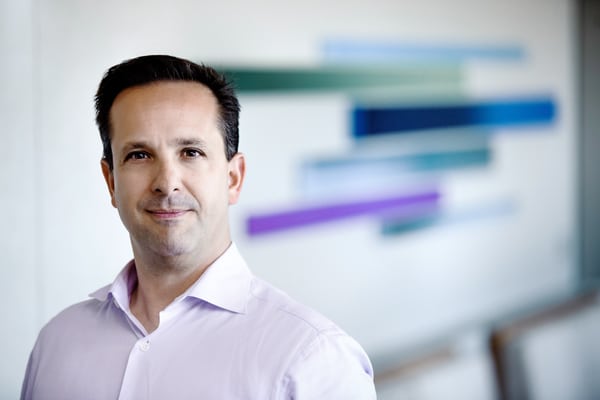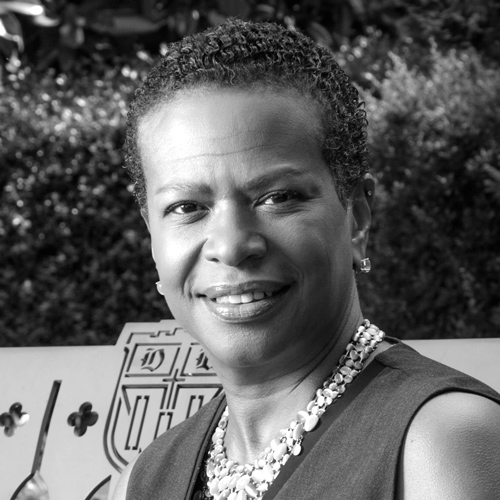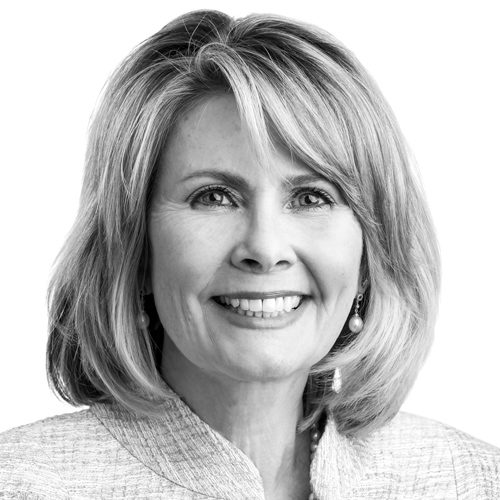Early in Philip Lo Scalzo’s career, when he was working as a legal intern at Pfizer and attending law school at night, he was standing with a group of lawyers when someone cracked a lawyer joke. “One of the older, wizened, white-haired attorneys really had a visceral response to that,” Lo Scalzo says. “His attitude was, ‘This is our profession, and when we belittle it like this and allow these jokes to metastasize in society, it erodes the confidence and credibility in our profession.’”
Lo Scalzo says he feels similarly about the idea that compliance officers police the organization. As senior vice president and chief compliance officer at BioMarin, a biotech company that develops treatments for ultra-rare diseases that primarily affect children, Lo Scalzo has worked hard to redefine the role the compliance department plays in an organization. “People don’t like people telling them what to do,” he explains. “If they think you’re the company cop or are going to have a binary position of whether a certain issue is right or wrong—and that if you do wrong you’re going to get in trouble—they’re not going to trust you or be transparent with you.”
Instead, Lo Scalzo says compliance professionals are like doctors but for a company. His team goes out and assesses risks for the organization. Compliance officers look into what could potentially make the organization ill and help find the right prescription. Like doctors, the compliance team has to gather information from its patient. “We can only make good decisions if people are providing us with real, honest information—transparent information—with which we can make such a decision,” he says. “We can’t analyze what’s not in front of us.”

In 2015, Lo Scalzo began a compliance awareness campaign with the aim of bolstering employees’ understanding of the value of compliance. “I learn a lot from my commercial colleagues on how we sell our products and our business,” Lo Scalzo says. “We’re trying to sell the value of proactive compliance.”
As part of the campaign, the compliance department hired commercial videographers to make a short video explaining BioMarin’s commitment to compliant and ethical behavior and illustrating what the compliance department does to help ensure that commitment is met. They then premiered the video at an all-hands meeting and went around the globe and presented it to BioMarin teams.
In part, the video explains the department’s three functions: internal audit, healthcare compliance, and GxP, which stands for good X practices. In pharmaceuticals, the X stands for good manufacturing, laboratory, clinical, vigilance, or distribution practices. Subject matter-specific auditors audit both BioMarin and its vendors in those areas. In building the compliance department, Lo Scalzo combined the existing GxP auditors from around the company and developed the healthcare compliance and internal audit functions from the ground up.
In many publicly traded companies, the internal audit function falls within the finance department. However, BioMarin created an independent audit department to alleviate any concerns around conflicts when that function audits financial controls, among other things. “The theory was to get a group in the company to oversee compliance and audit activity independent of operationalizing anything,” Lo Scalzo says. “So we brought internal auditors together with our healthcare compliance and GxP auditors. Some thought putting CPAs on a team with lawyers and scientific auditors was crazy, but we thought it would generate synergies, and it did.” Along with compliance issues, the internal audit function works to make BioMarin more efficient. By helping the business increase efficiency, he says the audit function is able to sell its value beyond its traditional role of identifying and remediating risk.
“You don’t have to make wholesale changes often to make a program more compliant or more risk-tolerant . . .the only way compliance professionals can recommend appropriate alterations is if they understand the business.”
Although policies and procedures are important, building trust among departments is paramount. Lo Scalzo describes the traditional compliance model as a game of whack-a-mole, where compliance officers knock down issues as they see them. If this is the outlook, he says, people are not going to turn to compliance ahead of time and will instead ask for forgiveness after something happens, which increases the company’s risk. “By building trust with our colleagues, we are able to promote a partnership that allows us to identify risk early and allow the company to act proactively toward compliance risk,” Lo Scalzo says.
The compliance awareness campaign encourages employees to bring questions before they become problems, so the business can adjust course accordingly. Lo Scalzo likes to compare it to sailing. “A one- or two-degree tack in your positioning takes you to a different destination,” he says. “You don’t have to make wholesale changes often to make a program more compliant or more risk-tolerant. A lot of time it’s just slight alternations. But the only way compliance professionals can recommend appropriate alterations is if they understand the business, and the only way to truly understand the business is to build strong cross-functional relationships.”
The compliance department’s tagline is “Innovation Powered by Integrity,” but Lo Scalzo says BioMarin is also powered by hope. “It gives hope to these families when they get this unbelievably terrifying news that their child has been diagnosed with a one-in-a-million disease that many people have not heard about, often even their pediatrician,” Lo Scalzo says. “In the ultra-rare disease space in the United States, it is not uncommon for us to get to know the patients and caregivers who use our products, as the numbers are so small. They reach out to us. We know their family stories. We get letters and Christmas cards from these families. We look at the photos of the children and the families when we walk in the door. We can feel the hope we bring to these families’ lives. That drives a lot of us, and it definitely drives me. It’s the proudest I’ve ever been representing an organization.”
Since Lo Scalzo launched the compliance awareness campaign, every employee has seen the department’s video, in which senior team members emphasize the weight of BioMarin’s mission and the role compliance plays in it.
“It is crucial,” Lo Scalzo says, “to have believers from your board to your CEO down through your organization to say, ‘We’re going to be highly innovative, we’re going to be creative, we want to be impactful and make deep differences in these patients’ lives—but we’re going to do it appropriately, compliantly, and with integrity.”
In 2011, Elegrity and BioMarin partnered to innovate the pharmaceutical’s multistep and cross-departmental grant submission process, and later, the firm’s independent research program. The collaboration resulted in two workflow applications that delivered on BioMarin’s goals of stronger compliance, accuracy, and auditability and positively contributed to the company’s compliance awareness program.
PwC has been honored to be a valued business partner to Philip Lo Scalzo and BioMarin, bringing our leading life sciences strategy, operations and regulatory services to help BioMarin achieve its strategic goals. For more information on how we can help you, visit pwc.com/us/pharma.
Symbiotix applauds the unwavering dedication and insight of Philip Lo Scalzo, one of this year’s AHL leaders. His passion and commitment worked to activate possibilities for patients and caregivers through important and meaningful education. We look forward to future collaborations that will continue to lead the way in the industry.


